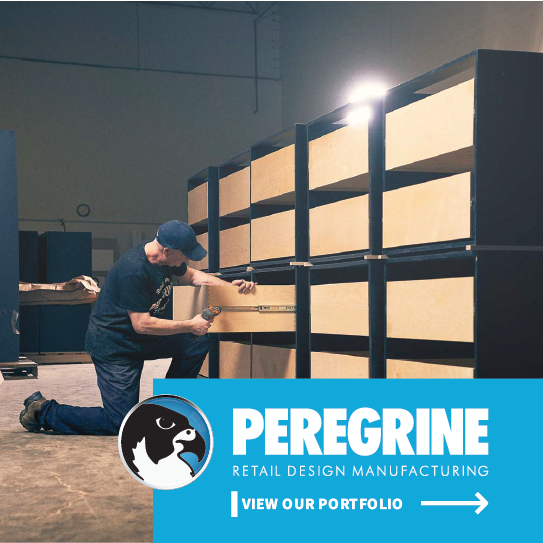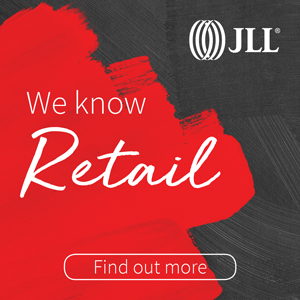Canadian Footwear Behemoth ‘ALDO’ Expands Eco Initiatives Amid Global Expansion
/photo: ALDO group
By Mario Toneguzzi
Mega shoe retailer the ALDO Group, with more than 850 stores in North America and more than 3,000 points of sales across 100 countries, has been focused since 2013 on setting an example for the fashion industry in battling climate change.
The company, which last year became the first fashion footwear and accessories company in the world to be certified climate neutral for its corporate stores, offices and distribution centres, is committed to reducing its greenhouse gas emissions in order to leave a positive impact on the environment.
In 2013, the ALDO Group began its sustainability journey by calculating its carbon footprint and setting itself a baseline for improvement. Since then, the company has improved the energy efficiency of its offices and stores and invested in projects to limit emissions in its own operations. From 2013 to 2018, the company said it achieved a 46 per cent reduction of its greenhouse gases in only five years.
photo: aldo group
“Online shopping is a part of our customer’s experience, so the next step is extending the climate neutral certification to include our eCommerce shipments and product transportation,” said David Bensadoun, CEO of the ALDO Group. “Not only is this part of the company’s social responsibility philosophy and purpose, which is a journey to create a world of love, confidence and belonging, it’s also our goal to make it easy for our customers to stay fashionable and to ‘choose good’. By communicating our progress about reaching ambitious new objectives, we hope to inspire other major fashion companies to follow suit.”
By 2030, the company said it plans to cut carbon emissions across its operations by 40 per cent and down per pair of shoe by 30 per cent, compared to its 2016 levels.
Here are some of the initiatives ALDO has undertaken in recent years:
A sustainable campus (recycling and composting facilities, plastic water-bottle free, electric vehicle charging stations, carpooling incentives, discounted public transit, a community garden and beehives, etc.);
A bagless initiative where their brands eliminate all single-use shopping bags, saving 10 million bags every year;
A sustainable collection made with recycled polyester and carbon neutral lake algae. The ALDO Group designers and materials teams continue to explore the latest advancements in sustainable materials to incorporate in their products;
Improving the environmental performance of the footwear and leather industries by working with the Sustainable Apparel Coalition, the Leather Working Group, and Sustainable Brands;
Community days and 15 paid hours to volunteer for all office associates around the world;
A commitment to diversity and inclusion, with a focus on female leadership. Today, 69 per cent of the ALDO Group managers are women and they’ve reached parity on their executive team;
An innovative wellness program encouraging associates to stay fit, eat healthy, and reduce stress (on-site gym, optometrist appointments, mindfulness classes, chair massage services, nutritionist-approved meals, osteopaths, etc); and
Work/life integration guidelines and services in offices (telecommuting guides, flex hours, summer Fridays, subsidized daycare, car maintenance and wash, fresh take-out meals, etc.)
photo: square one shopping centre
ALDO was created in 1972 by Aldo Bensadoun, who was born in Algeria. In his teenage years, his family moved to France. His grandfather was a shoemaker and his father owned a few footwear stores in the southern part of France. After university in the United States, Bensadoun travelled to Montreal in 1967 to visit Expo. He fell in love with the city with its perfect mix of Europe and North America. He moved to Montreal where he did his MBA studies at McGill University. Last year, The Bensadoun School of Retail Management at McGill University was created after a $25-million donation from Bensadoun.
The ALDO Group has its head office in Montreal and has international offices in Europe and in Asia.
“ALDO is no longer a retailer. We’re really an omnichannel specialist if you want because it’s not only stores that we have. It’s multi. We have wholesale, points of sales, and stores as well. Globally we have more than 3,000 points of sale,” said Valérie Martin, vice-president of communications, culture and CSR (corporate social responsibility) for the ALDO Group.
“Corporate stores. That means we own and operate these stores. All the stores in North America, all the stores in UK, Ireland and France are owned by the ALDO Group. All the rest of the stores are franchised. Franchise partners for us are important.”
She said 50 per cent of the overall sales for the company currently come from the retail stores.
Martin said the company’s sustainability initiatives began about 10 years ago when it started to look into this area.
“The values of ALDO are so ingrained in everything we do. We’re really a purpose-driven company. For the ALDO Group it was super important to do it. It took nine years for our coming out and start talking about it publicly,” said Martin.
Karine Kicak, senior sustainability manager for the company who has a background in chemical engineering, helps ALDO in its environmental footprint.
“That involves working closely with the product team and also working to find material suppliers that share values and that are able to provide all of the data that we need to just make sure that we’re doing our due diligence in that what we pick for material is truly better for the environment than what the conventional materials are in the footwear business,” said Kicak.
photo: Dealhack canada
This year the company launched its Ripple Sneaker. The shoe consists of two innovative materials - the outsole is made from algae and the main part of the shoe is polyester made from recycled plastic.
“We’re also working to reduce and eliminate as much packaging as we can. Again this summer we made a very bold commitment and we eliminated all shopping bags from our stores. Now when a customer comes inside our store and he purchases a pair of shoes, he can walk out with the shoebox only but our shoebox is specially designed to have a rope on it so that it acts as a shopping bag as well,” said Kicak.
The reduction of emissions began with retrofitting stores to be more energy efficient by changing light bulbs and making sure to reduce energy consumption when it comes to heating and operating the stores. It has also purchased clean energy for stores.
“We’re also investing a lot of time and energy in training our associates because we feel having a huge CSR team is not our goal. It’s to make every single associate a key ambassador of our initiatives which will make a huge difference at the end,” added Martin.
“We’re also doing a lot of (research and development) to find new products, new material, that will really change the dynamic.”
Mario Toneguzzi, based in Calgary has 37 years of experience as a daily newspaper writer, columnist and editor. He worked for 35 years at the Calgary Herald covering sports, crime, politics, health, city and breaking news, and business. For 12 years as a business writer, his main beats were commercial and residential real estate, retail, small business and general economic news. He nows works on his own as a freelance writer and consultant in communications and media relations/training. Email: mdtoneguzzi@gmail.com.












![L.L.Bean Continues Canadian Expansion with 1st Toronto Store [Photos]](https://images.squarespace-cdn.com/content/v1/529fc0c0e4b088b079c3fb6d/1603908990197-KDT3UNTEHFBFJF5FJ36N/L.L.Bean_Don_Mills_8.jpg)





![Retail-insider-NRIG-banner-300-x-300-V01-3[2].jpg](https://images.squarespace-cdn.com/content/v1/529fc0c0e4b088b079c3fb6d/1593476525034-QRWBY8JUPUYFUKJD2X9Z/Retail-insider-NRIG-banner-300-x-300-V01-3%5B2%5D.jpg)
![Retail-insider-NRIG-banner-300-x-300-V01-2[2].jpg](https://images.squarespace-cdn.com/content/v1/529fc0c0e4b088b079c3fb6d/1593476491497-W6OZKVGCJATXESC9EZ0O/Retail-insider-NRIG-banner-300-x-300-V01-2%5B2%5D.jpg)
![Retail-insider-NRIG-banner-300-x-300-V01-4[2].jpg](https://images.squarespace-cdn.com/content/v1/529fc0c0e4b088b079c3fb6d/1593476508900-TJG5SNQ294YNOCK6X8OW/Retail-insider-NRIG-banner-300-x-300-V01-4%5B2%5D.jpg)